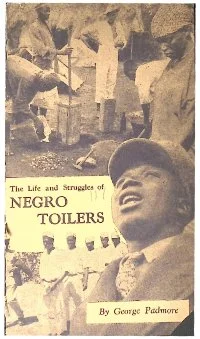EJI’s report documents the abduction, abuse, and enslavement of Africans for nearly five centuries.
Between 1501 and 1867, nearly 13 million African people were kidnapped, forced onto European and American ships, and trafficked across the Atlantic Ocean to the Americas, including the British, French, and Spanish colonies that would later comprise the United States.
Two million people died during the barbaric Middle Passage.
The global trafficking that separated millions of women, men, and children from their homes, families, and cultures destabilized African countries and left them vulnerable to conquest, colonization, and violence for centuries.
And in the Americas, a caste system based on race and color emerged in tandem with legal and political systems to codify white supremacy and enshrine enslavement as a permanent and hereditary status. That racial hierarchy continues to haunt our nation today.
The enslavement of human beings occupies a painful and tragic space in world history. Denying a person freedom, autonomy, and life represents the worst kind of abuse of human rights.
Many societies tolerated and condoned human slavery for centuries. But in the 15th century, an expanded and terrifying new era of enslavement emerged that has had a profound and devastating impact on human history.
The abduction, abuse, and enslavement of Africans by Europeans for nearly five centuries dramatically altered the global landscape and created a legacy of suffering and bigotry that can still be seen today.
After discovering lands that had been occupied by Indigenous people for centuries, European powers sent ships and armed militia to exploit these new lands for wealth and profit starting in the 1400s. In territories we now call “the Americas,” gold, sugar, tobacco, and extraordinary natural resources were viewed as opportunities to gain power and influence for Portugal, Spain, Great Britain, France, Italy, Germany, and Scandinavian nations.
Europeans first sought to enslave the Indigenous people who occupied these lands to create wealth for foreign powers, resulting in a catastrophic genocide. Disease, famine, and conflict killed millions of Native people within a relatively short period of time.
Determined to extract wealth from these distant lands, European powers sought labor from Africa, launching a tragic era of kidnapping, abduction, and trafficking that resulted in the enslavement of millions of African people.
Between 1501 and 1867, nearly 13 million African people were kidnapped, forced onto European and American ships, and trafficked across the Atlantic Ocean to be enslaved, abused, and forever separated from their homes, families, ancestors, and cultures.
The Transatlantic Slave Trade represents one of the most violent, traumatizing, and horrific eras in world history. Nearly two million people died during the barbaric Middle Passage across the ocean. The African continent was left destabilized and vulnerable to conquest and violence for centuries. The Americas became a place where race and color created a caste system defined by inequality and abuse.
In the “colonies” that became the United States, slavery took on uniquely appalling features. From New England to Texas, Black people were dehumanized and abused while they were enslaved and denied basic freedoms. Legal and political systems were created to codify racial hierarchy and ensure white supremacy. Slavery became permanent and hereditary, defined by race-based ideologies that insisted on racial subordination of Black people for decades after the formal abolition of slavery.
Millions of Black people born in the U.S. were subjected to abuse, violence, and forced labor despite the young nation’s identity as a constitutional democracy founded on the belief that “all men are created equal.” Racialized slavery was ignored, defended, or accommodated by leaders while the new nation gained extraordinary wealth and influence in the global economy based on the forced labor of enslaved Black people.
The economic legacy of the Transatlantic Slave Trade—including generational wealth and the founding of industries that continue to thrive today—is not well understood.
Montgomery, AL: Equal Justice Initiative, 2023. 150p.











